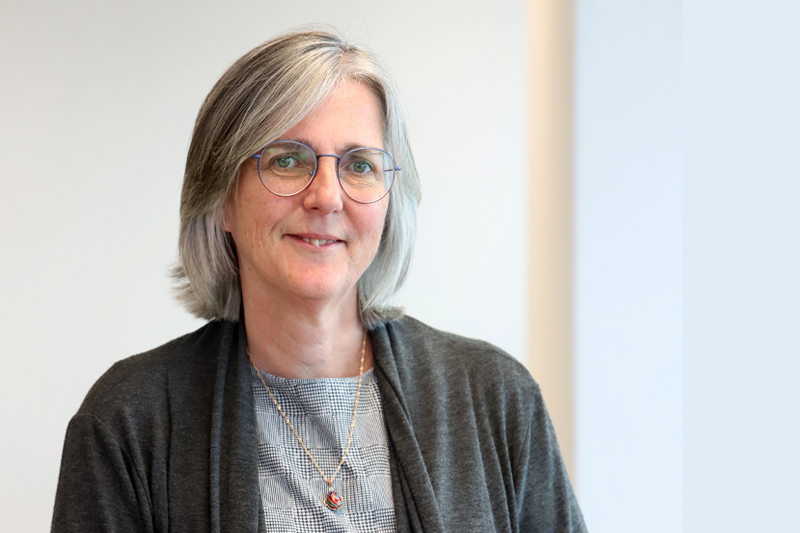Important steps to ensure connectivity
20 September 2022 | Professor Sue Harrison
Dear colleagues and students
It has been a difficult 48 hours with the national escalation to stage 6 loadshedding and the failure of one of our key data centres which provides Wi-Fi connectivity to a number of our student residences and other sites. This failure, as with the earlier one, is as a result of the impact of frequent loadshedding and the recent escalation in loadshedding on its back-up power supply.
I would like to thank our colleagues in Information Communication and Technology Services (ICTS) and Properties and Services (P&S) for their extraordinary hard work to bring our data centre back into service under very pressured circumstances. I would also like to recognise and thank staff in the Department of Student Affairs (DSA), particularly in Student Housing and Residence Life for stepping in and supporting students, and of course the students themselves for the plans they each made to keep their studies moving forward as well as was possible. I understand and acknowledge how stressful this can be for our students at this time of the academic year.
On Monday, 19 September I met with members of the Leadership Lekgotla to get an assessment of the situation and to collectively agree on the additional steps and measures needed to be put in place to facilitate work and study. While we are dealing with ensuring connectivity stabilises on our campus, we are confronted with an unpredictable period nationally with regards to expected future loadshedding.
As the Leadership Lekgotla we have agreed to request all course convenors and deans to exercise compassion and discretion in granting concessions to students who may have been affected and may still be affected in completing their academic work, particularly with respect to the challenges of escalated load shedding and failure of the data centre over the past 48 hours.
As a university we are taking a number of steps to ensure that we work towards mitigating the national situation. I have outlined below some of those key steps, and will share more in future as our work continues:
Spaces for working and studying during loadshedding
I would like to remind students and staff that the following sites have redundant power supplies (i.e. will have powered network points during loadshedding):
- Masingene Building
- School of Economics Building
- Design School
- School of Education
- ICTS on Main
- Institute of Child Health
- Meulenhof Building
- Sports Centre Building
- Chemical Engineering Building
- New Engineering Building
- Environmental and Geographical Building
- Computer Science Building
- New Lecture Theatre
- Chancellor Oppenheimer Library
The following residences have UPS and generators set-up:
- OBZ Square
- Avenue Road Residence
- Graça Machel Hall
The following residences are on the Groote Schuur Hospital grid, and are therefore exempt from loadshedding:
- Clarinus
- Clarendon
- Rochester
- Groote Schuur Residence
- Liesbeeck Gardens
- Medres
Further information on sites that you can utilise during loadshedding:
- See a list of venues with back-up power that can be booked for study purposes.
- See a list of UCT venues with back-up power-generation capacity.
Working with the spaces available, we will extend the list of venues with back-up power and that are accessible to provide study spaces, as not all of our buildings are suitable.
Zero-rated websites
For students who need to access information outside of the UCT Wi-Fi network I would like to remind you that a number of sites have been zero-rated (i.e. you do not need data to access the sites). These include a number of our key learning sites.
Improving connectivity and study spaces on campus
Significant work is underway by colleagues in both P&S and ICTS to ensure that we further protect key sites during loadshedding and ensure connectivity. On Monday, 19 September P&S bought additional UCT Shuttle buses into service to transport students to parts of the campus that had connectivity and if this is needed again further shuttles will be provided. Work is also underway with colleagues in DSA to look at adding further study spaces across campus that are protected during loadshedding.
It has been a particularly difficult and unpredictable period for staff and students alike and I would like to encourage students to reach out to Student Wellness Services should they need support and for staff to reach out to Human Resources. It is an important time in the academic year and as a university leadership our approach will remain flexible and sensitive as we put in place measures to successfully complete the academic year as planned.
Sincerely
Professor Sue Harrison
Acting Vice-Chancellor
Read previous communications:
 This work is licensed under a Creative Commons Attribution-NoDerivatives 4.0 International License.
This work is licensed under a Creative Commons Attribution-NoDerivatives 4.0 International License.
Please view the republishing articles page for more information.







